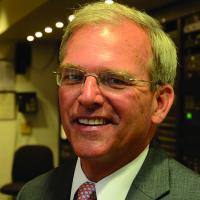March 4, 2021

Back in the late 1950s, there was a television show called “The Millionaire” that centered around a very wealthy man, John Beresford Tipton, who in each episode gave a $1 million check to a stranger, allowing the show to explore how the unexpected wealth changed the life of the recipients. Sometimes, it was for the better, and sometimes for the worse.
The Commonwealth of Massachusetts just received an unexpected check from the federal government targeted to school districts. This money is separate from any that will come from the $1.9 trillion virus relief bill that is currently in front of Congress.
Massachusetts received $800 million, with Boston due to get more than $120 million of the total amount. To give you an idea of how much money this is, $800 million is four times this year’s funding increase across all of Massachusetts as a result of the Student Opportunity Act, with Boston’s $120+ million equal to one year of the Boston Public Schools’ bus contract.
Our city’s school district has won the lottery. The money is intended to mitigate the effects of the pandemic, and it comes without many restrictions. A wise use of this funding could help in implementing changes that will benefit our school system’s students.
Using $35 million of these dollars for universal pre-Kindergarten, known as K-1, would be a permanent improvement to Boston’s school system. A K-1 experience has been shown to dramatically improve educational outcomes for low-income students. We probably need about 1,500 additional seats to serve all four year olds in Boston.
Pre-K is a formative equity issue that launches children onto a path to academic success. This investment in Boston’s children and their families, promised in 2013, is past due.
Much of the rest of the money should be used to support students who have not kept pace during the pandemic. About a year ago, most school systems went to remote learning, meaning that students did classroom work by Zoom or another internet-based system. For their part, many suburban school districts chose hybrid systems (typically, half of the students were in classrooms and half on Zoom, alternating by the week), as did most private and Catholic schools.
But urban districts mostly stayed remote as the September school year began, a decision partly related to fear among families of color, who experienced the worst of the pandemic, and among teachers and their unions.
Students from low-income districts suffered even more, with insufficient internet service, lack of access to computers, and lack of quiet space to learn in their homes. Many students were also tasked with caring for younger siblings or family friends when daycare centers closed down, but adult guardians had to leave the home as essential workers.
We have limited data on how remote learning affected students’ learning. MCAS isn’t a useful assessment tool for this kind of measurement. It’s a snapshot that measures more how schools and school systems are performing than how well individual students are doing against standards.
However, we know from assessments done in Maryland, Georgia, Dallas, and Washington DC that there has been significant slippage among many students, especially those from low-income families.
Massachusetts needs to do its own an assessment quickly if we’re going to help students achieve educational standards for their grades before September. There are tests that measure academic progress, and teachers can provide assessments of their students and where they stand on meeting educational standards.
Doing the assessment will provide us with the information we need to determine how wide the learning gap is, and who needs to catch up. As education is cumulative, advancing students into the next grade without evidence that they had mastered the previous grade’s requirements could greatly increase failure among students. Some of the federal funds should be used to hire tutors, and/or to continue school into the summer for those students who are not achieving grade standards.
We have the money to do what we need to do for students to catch up, and to bring universal K-1 to fruition. The past year has given us many reasons to want to see changes in how our city is run, and to make decisions that will create more equity. This unexpected windfall is an opportunity we cannot afford to waste.
Bill Walczak of Dorchester is the founder and former president/CEO of Codman Square Health Center. He also helped to found Codman Academy, a public charter school.



